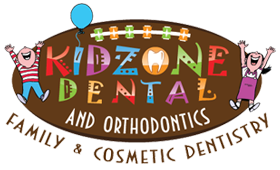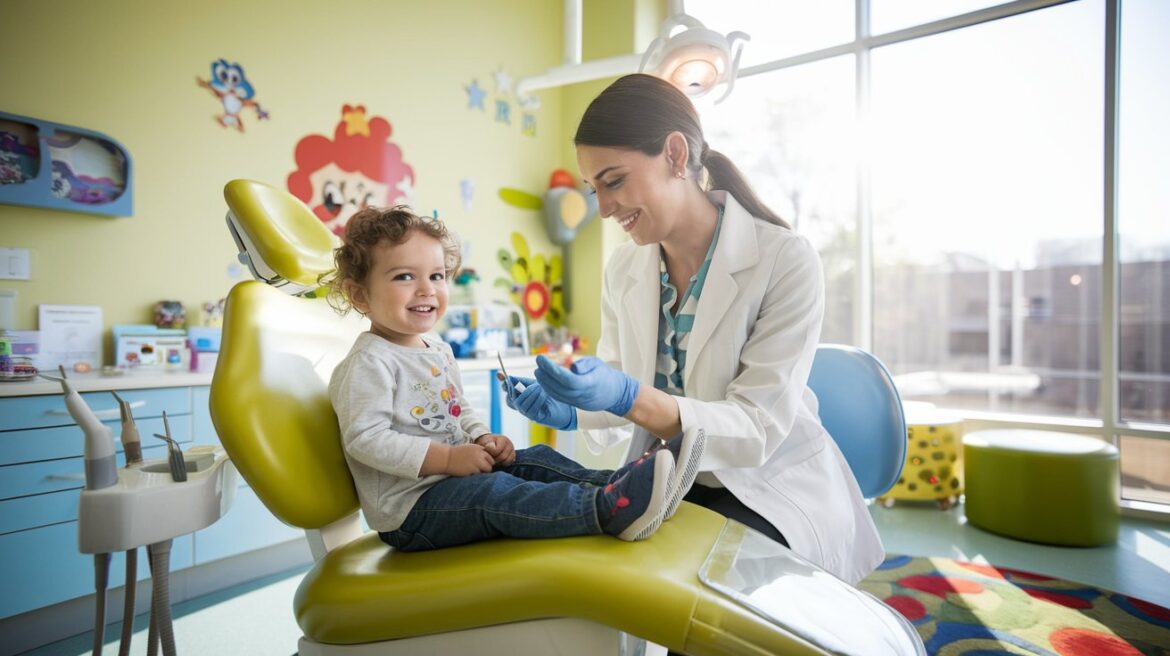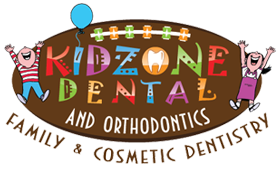The Right Time: When Should Your Child See a Pediatric Dentist
As a parent, one of the most significant responsibilities you have is ensuring your child’s health and well-being, and that includes their dental health. An often-overlooked aspect of this responsibility is when to begin taking your child to the dentist. Many parents wonder, when should a child first see a pediatric dentist. The answer is crucial for setting a strong foundation for your child’s oral health.
When Should Your Child Have Their First Dental Visit?
The American Academy of Pediatric Dentistry (AAPD) recommends that your child should have their first dental visit by age one or within six months of the first tooth erupting. Although it may seem early to visit the dentist, this timeframe is important for several reasons.
1. Preventive Care: Early visits to the dentist allow for preventive care. The dentist can identify potential dental issues, such as cavities or gum disease before they become more serious. This early intervention can save your child from more complicated treatments later.
2. Developmental Monitoring: Pediatric dentists are trained to monitor the development of teeth and jaws. They can track your child’s tooth eruption patterns, check for any misalignment, and ensure that everything is developing as it should.
3. Education for Parents: The first dental visit is an opportunity for parents to learn about proper dental care for their children. Pediatric dentists provide valuable information on oral hygiene practices, dietary recommendations, and tips for managing common dental issues like teething and thumb sucking.
4. Building Comfort with Dental Visits: Introducing your child to the dentist early helps them become comfortable with dental visits. Regular exposure to the dental office environment can reduce anxiety and fear, making future visits more manageable.
The Role of Parents in Early Dental Care:
As a parent, you play a crucial role in your child’s dental health from an early age. Start instilling good oral hygiene habits as soon as your child’s first tooth appears. Here are some guidelines:
- Cleaning Baby Teeth: Use a soft, damp cloth to wipe your baby’s gums and teeth after feeding, even before the first tooth erupts. As soon as the first tooth appears, you can transition to a soft-bristled toothbrush and a small amount of fluoride toothpaste.
- Dietary Choices: Be mindful of your child’s diet. Limit sugary snacks and drinks, which can lead to cavities. Encourage healthy eating habits that promote good oral health, such as fruits, vegetables, and whole grains.
- Model Good Oral Hygiene: Show your child the importance of brushing and flossing by doing it together. Make oral hygiene a fun and engaging activity.
What to Expect at the First Visit:
The first dental visit is often a brief appointment focused on making your child feel comfortable. Here’s what you can generally expect during this initial visit:
1. Welcoming Environment: Pediatric dental offices are designed to be friendly and inviting for children. Expect colorful decor, toys, and staff trained to work with kids to create a positive experience.
2. Dental Examination: The dentist will perform a gentle examination of your child’s mouth. They will check for any signs of decay, abnormalities, or developmental issues. This exam may include counting teeth and assessing their condition.
3. Discussion: The dentist will discuss your child’s dental health, including any concerns you may have. This is the time to ask questions about teething, oral hygiene, and any other issues you’re curious about.
4. Guidance on Oral Care: The pediatric dentist will guide how to care for your child’s teeth, including brushing techniques, the right amount of toothpaste, and when to start flossing.
5. Fluoride Treatment: Depending on your child’s age and dental needs, the dentist may recommend a fluoride treatment to help strengthen their teeth and prevent cavities.
4. Educational Materials: Many pediatric dentists provide fun educational materials, such as coloring books or toothbrushes, to make dental care exciting for children.
The Importance of Ongoing Dental Visits:
After the initial visit, children should continue to see a pediatric dentist every six months for regular check-ups and cleanings. These routine visits are essential for:
- Monitoring Dental Development: The dentist will keep track of your child’s dental growth and development, including the transition from baby teeth to permanent teeth.
- Preventing Future Issues: Regular check-ups allow for early detection of any potential problems, such as cavities or misalignment, ensuring that they are addressed before becoming more serious.
- Reinforcing Good Habits: Ongoing visits help reinforce the importance of good oral hygiene. Each appointment serves as a reminder for both you and your child to maintain healthy habits.
- Adapting Care as Your Child Grows: As your child grows and their dental needs change, the pediatric dentist can provide tailored advice, such as the need for orthodontic evaluations or preventive treatments.
Signs Your Child May Need to See a Dentist Sooner:
While the AAPD recommends the first visit by age one, there are certain circumstances where your child may need to see a dentist earlier:
- Early Tooth Decay: If you notice dark spots, discoloration, or holes in your child’s teeth, it’s essential to seek dental care immediately. Early childhood cavities can develop quickly and require prompt attention.
- Teething Troubles: If your child is experiencing significant pain or discomfort during teething, a pediatric dentist can provide guidance and recommend appropriate treatments or pain relief methods.
- Misalignment or Bite Issues: If you observe any issues with your child’s bite, such as difficulty chewing or noticeable misalignment of teeth, consider scheduling a dental appointment for an evaluation.
- Persistent Thumb Sucking: If your child continues to suck their thumb beyond the age of four or five, it may impact their dental development. A pediatric dentist can offer strategies to help them break the habit.
Establishing a dental home for your child is one of the best gifts you can give them for their long-term oral health. By scheduling their first visit by age one, you set a positive precedent for a lifetime of healthy smiles. Early dental visits provide opportunities for preventive care, education, and building a comfort level with dental professionals that can ease anxiety in the future.
Remember that pediatric dentists are not just providers of dental care; they are partners in your child’s health journey. They can guide you and your child through the various stages of dental development, ensuring that your little one has every opportunity for optimal oral health. Start early, prioritize regular visits, and empower your child to maintain a healthy, confident smile!








